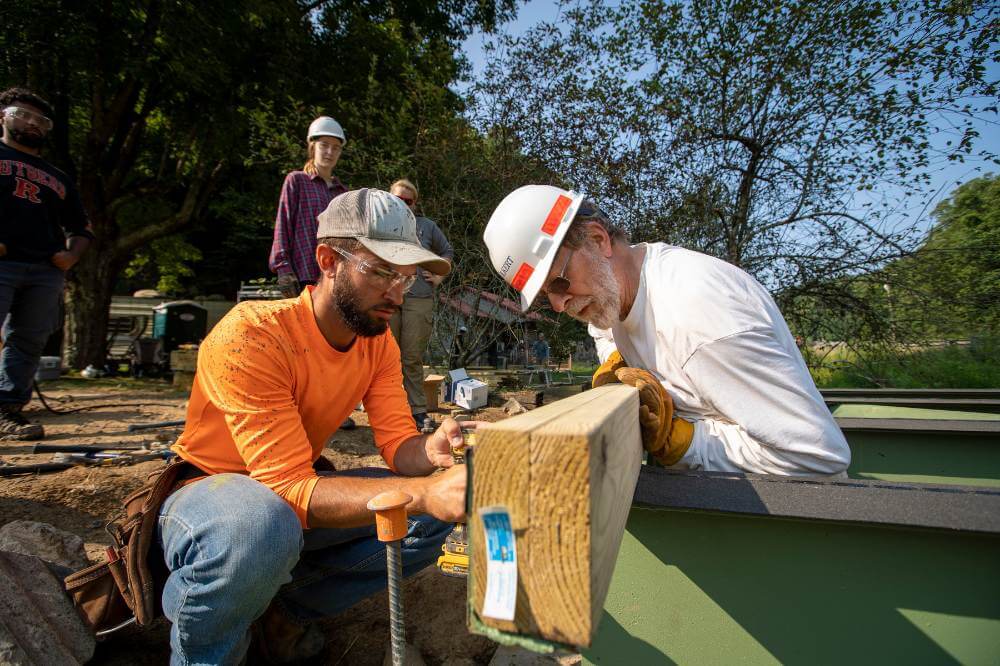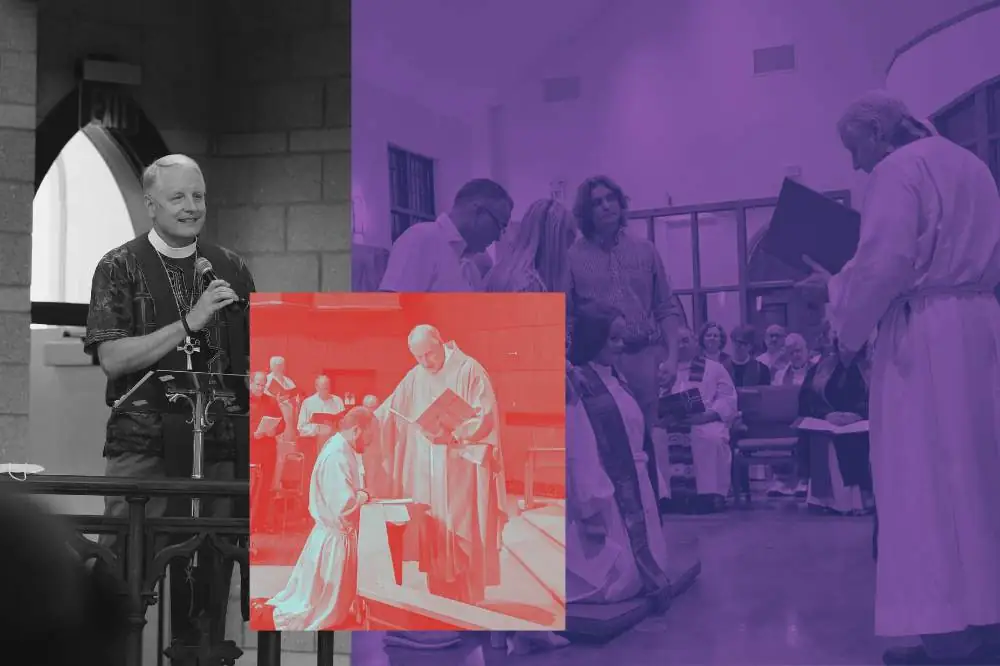The word synod comes from the Ancient Greek σύνοδος (synodos). Think of the prefix syn meaning together or same (syntax, synonym, synthetic, etc.), and the Greek word (h)odos (from which we get odometer), meaning road or way or journey. Synod denotes our journey together. Historically and ecclesiastically, synod has evolved into meaning an assembly for the governance of church affairs.
There are circumstances that enhance common journey, but in an increasingly polarized church culture, we’re also painfully aware of obstacles to that end. Lutheran confessions anticipate diversity of opinion and practice as potential barriers to church unity:
And to the true unity of the Church it is enough to agree concerning
the doctrine of the Gospel and the administration of the Sacraments. Nor is it necessary that human traditions, that is, rites or ceremonies, instituted by
men, should be everywhere alike… (Augsburg Confession, Article VII)
Any community of people, church included, will experience conflict from time to time. That’s why at the very end of the eloquent and comforting farewell discourse (chapters 14-17 of John) Jesus prays aloud his famous unity prayer, that we might all be one. He was aware that conflict could be a real threat to the church. The liturgical sharing of the peace evolved early in eucharistic practice because of conflict’s inevitability. How dare we, in essence, come to the Lord’s supper to be reconciled to God in Christ through this sacrament, while we refuse to be reconciled to the Christ in our neighbor with whom we are at odds?
From who gets to be Mary in the Christmas play to the color of the new carpet to traditional vs. contemporary worship, we don’t agree. And social statements—oh my! A church that can’t say anything about how we discern Christ’s calling in practical terms isn’t paying attention, but a church that does alienates those whose opinions differ from that of a synod or churchwide assembly. And people posture and/or withhold contributions if it doesn’t go their way. And we choose sides, including demonizing the other. You know how it goes…
All this brings me to something I’ve discerned working in a synod office for going on 10 years now. The church’s impossible task is to proclaim and pursue justice like the prophets, like this year’s Gospel of Luke, and like Jesus, and at the same time we’re called constantly to reconciliation, to building bridges. Law and Gospel, maybe, this dilemma?
We know both locally and globally where we find common ground. Helping the needy among us is where we start building bridges. I want to take this opportunity to say thank you for the tremendous outpouring of generosity—from all corners, from interfaith groups and groups with no faith statement at all, in addition to so many of ELCA and other congregations across the nation in response to your help and donations as we’ve worked through Lutheran Disaster Response Carolinas—to help alleviate suffering from Hurricane Helene in western NC. It’s been nothing short of amazing, now in the $3 million range! Both literally and figuratively, with your help, we’re building bridges. What a synod should do.
Were we to sit down with the Mennonites and begin a discussion about believer’s baptism vs. infant baptism, we would quickly devolve into deep conflict akin to the Lutheran persecution of followers of Menno Simons centuries ago in Europe. But when we both see this deep need in western NC, and as we know the Mennonites specialize in building bridges as their niche in the disaster response world, and as we have through LDR connections with organizations and fundraising, we find unlikely yet blessed partnerships through helping others together. This literal building of bridges in partnership between Lutherans and Mennonites—Bridging Together—is blessed reconciliation. When we find the common ground of serving our neighbor together, not only do physical bridges get built, but bridges eroded away by centuries of theological conflict begin to be rebuilt as well.
The Community Foundation of Western North Carolina (CFWNC) saw this partnership and the need to replace uninsured bridges in western NC. They didn’t care who baptized whom when. For them, our conflict doesn’t matter as long as we can set aside our differences to help those in need. And that’s exactly what we’re doing. And so the CFWNC said, “Here’s $2 million for the NC Synod to partner with the Mennonites to keep building bridges.” And so we will! And we invite you to pause from all the occasions for conflict in this Advent season as we become—with once unlikely partners—vessels of hope and reconciliation for a broken world.
Journeying together (synodos),





